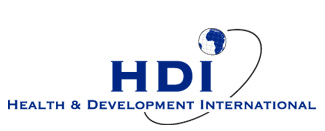Funded by
Neglected tropical diseases (NTDs) afflict the poor disproportionately and tend to be overlooked by larger development and research institutions. NTDs are primarily parasitic diseases (e.g., soil transmitted helminths, schistosomiasis, lymphatic filariasis, and onchocerciasis), although some are bacterial (e.g., trachoma, leprosy, Buruli ulcer). Many NTDs have very simple and inexpensive medical treatments; however, they exist in communities where health care is minimal and these medicines are inaccessible.
HDI approaches problems that afflict the poorest segments of society by acting as a catalyst. HDI has been involved in NTDs for many years, starting with Guinea worm eradication in 1990. In 1997, HDI began working to eliminate lymphatic filariasis in Togo; success was achieved in 2009 when Togo became the first sub-Saharan country to eliminate lymphatic filariasis. Since lymphatic filariasis was eliminated in Togo, HDI has been active in lymphatic filariasis post-elimination surveillance efforts, as well as lymphatic filariasis morbidity management in Togo.
The Ministry of Health in Togo, in conjunction with HDI and the US Centers for Disease Control and Prevention, has been developing integrated mass drug distributions to treat and prevent NTDs since 2005. Integrated mass drug distributions to treat a variety of NTDs can be more cost-efficient and sustainable than single drug distributions.
Since 2009, HDI has been working with the Togolese Ministry of Health and USAID to implement large-scale integrated mass drug administrations to treat onchocerciasis, schistosomiasis, and soil-transmitted helminths. Onchocerciasis is caused by infection with Onchocerca volvulus (a type of roundworm) and the bacteria they carry, Wolbachia. The release of bacteria after the roundworm dies causes an immune response that can kill tissue in the eye, resulting in complete or partial blindness. Schistosomiasis is caused by infection with certain types of trematodes, and chronic infection has been associated with liver and kidney damage, as well as increased risk of HIV transmission by causing the cervix to have a “raw” surface. Finally, soil transmitted helminths involve infection with a number of different types of worms, including Ascaris lumbricoides, Trichuris trichiura, and hookworms. Infection with soil transmitted helminths can result in diarrhea and stomach pain, and hookworm in particular causes anemia. Both schistosomiasis and soil transmitted helminths are associated with impaired growth and cognitive development in children.
Every year, Togo’s Ministry of Health and HDI collaborate to distribute ~6 million doses of medication to ~2.8 million people. These medications (albendazole, praziquantel, ivermectin) are given in different combinations depending on the prevalence of each disease in each local area.
Medicines to treat these infections are generously donated by Merck/Mectizan Donation Program (ivermectin), Glaxo-Smith-Kline/Children Without Worms (albendazole for school-age children), and UNICEF (albendazole for women of child-bearing age), while praziquantel is purchased by USAID and donated to the population of Togo by the people of the United States. USAID has generously provided funds for the integrated drug distribution platform in Togo.
NTD resources
